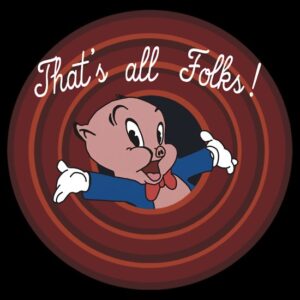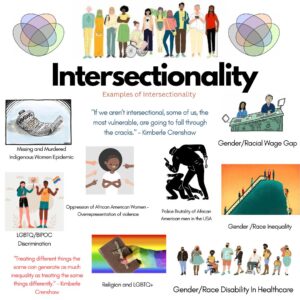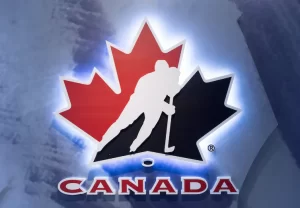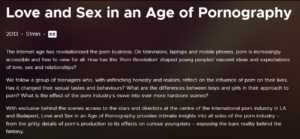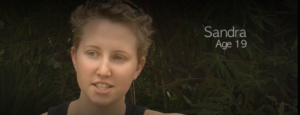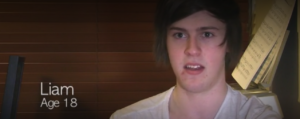Dominant Gender Cultural Norms are prevalent in today’s pop culture. Below are some examples of gender roles, sexism, biopower, social constructivism, and gender ideologies from advertisements, movies, books, and songs.
Tv Show/Book – The Handmaid’s Tale by Margaret Atwood
THE HANDMAIDS TALE Season 1 TRAILER (2017) Hulu Series – YouTube
Handmaids Tale Trailer – Tv Series
The Handmaid’s Tale, Margaret Atwood’s most famous book, now turned into a television show, depicts a dystopian society with gender roles. In Gilead, men rule and women are subservient. Gilead society started by restricting women’s economic rights by closing their bank accounts and giving their contents to husbands or male family members. Then, employers must fire all women, ending women’s right to work outside the home. After that, they can’t travel abroad. They lose their rights one by one. If they disobey, these women are severely punished for their clothing, food, and friends.
One female role is a handmaid. These are the last fertile women forced to bear the children of political leaders who cannot have children. They are placed in homes, sexually assaulted, stay with the family for their pregnancy, and then are moved to another household to repeat the process. Commanders’ families employ infertile “Marthas” to cook, clean, and serve.
The Handmaids Tale reinforces cultural gender norms that women’s sole purpose is to bear children and care for the home and men. It also demonstrates biopower as Gilead commanders control the lives and bodies of all in their society. The tale reinforces male inferiority to women and shows that even in today’s society, taking away women’s economic and job rights leaves them vulnerable and powerless.
Televison Advertisment – Volkswagen UK
Volkswagen UK on Twitter: “When we learn to adapt, we can achieve anything. Introducing the 100% electric e-Golf.” / Twitter
The video shows only men working in a spacecraft. Space is often perceived as dangerous and risky, and you must be in top physical condition to have the opportunity to experience the world from the galaxy. Women are frequently not portrayed in space because it is viewed as a man’s domain. In fact, only 63 women have been in space compared to 533 men (Mars, para 1).
The second video shows a male amputee using his prosthetic to perform a long jump. While this man is incredible and has clearly adapted to his disability, this advertisement is discriminatory against female amputees. As we will see later, males are the only ones depicted in dishonourable situations in this advertisement.
Finally, men are portrayed as powerful and honourable in this advertisement, but when a woman was depicted in the final clip sitting on a park bench reading a book with a stroller next to her. This demonstrates that, while men are strong and capable of completing difficult tasks, the role of a woman is to be a mother.
This advertisement conforms to gender norms and demonstrates men and women in stereotypical situations. Eventually, I hope society will come to terms with the fact that gender is a social construction and that the harmful beliefs that stem from it affect many groups of people.
Poster Advertisements – Pro-active

Now, this advertisement is so incredibly sexist that it infuriates me. Proactiv is a popular acne routine that many teenagers and young adults use. As someone who struggled with acne, this was a lifesaver when I was younger, and I know how it is to be so self-conscious of blemishes on your skin.
This advertisement explicitly targets young women and portrays that they will not attract the male eye if they do not have clear skin. This advertisement demonstrates gender performativity, the idea that being a female entails caring about your appearance and conforming to the ideology of attractiveness. A portion of this ideology has perfect skin that is free of blemishes. A woman’s value is determined based on how they look.
Disney Movie – Cinderella
Cinderella (1950) Trailer #1 | Movieclips Classic Trailers – YouTube
Disney’s Cinderella perpetuates gender stereotypes and gender performativity because women must be put together (hair, makeup, outfit, etc.) to attract the male gaze. Her transformation into a glamorous and immaculately dressed young bachelorette reinforces the beauty ideal. Cinderella’s chances of making a good and lasting impression on the Prince would be slim to none if she attended the Prince’s ball in her raggedy attire. The ball in Cinderella also demonstrates gender norms and ideologies surrounding marriage and how this is what all women want. Cinderella was also expected to do housework, cook, and clean, a stereotypical role for women.
Song – God Made Girls – Raelynn
RaeLynn – God Made Girls (Official Video) – YouTube
This song is the stereotypical ideology of what it means to be a girl. It paints women as nothing but pretty little objects. Lyrics such as “somebody’s gotta wear a pretty skirt” and “give him a reason to hold that door” intends that women exist as nothing more than a way of pleasing men’s frivolous romantic fantasies. Not only Is this song insensitive and sexist toward women, but it is also toward men. The lyrics “somebody’s gotta be the one to cry” portrays the idea that men cannot cry; they need to be tough and strong. This reinforces toxic masculinity and teaches young men that showing their emotions means your feminine.
I also think that this song is offensive to our LGBTQ+ community as it reinforces heteronormativity. It portrays that a man and women are the norms in a relationship and that “god” created two genders to play feminine and masculine roles.
Works Cited
Mars, Kelli. “Women Astronauts and the International Space Station.” NASA, 29 Mar. 2021, www.nasa.gov/feature/women-astronauts-and-the-international-space-station.
Attributions
Series Trailer MP. “THE HANDMAIDS TALE Season 1 TRAILER (2017) Hulu Series.” YouTube, 23 Mar. 2017, www.youtube.com/watch?v=dVLiDETfx1c.
“Volkswagen UK On.” Twitter, 26 Dec. 2018, twitter.com/UKVolkswagen/status/1077836412743864320.
Arun, Vishnu. “25 Sexist Ads, You Won’t Believe Existed | Lessons From History.” Medium, 4 Apr. 2022, medium.com/lessons-from-history/25-outrageously-sexist-vintage-ads-you-wont-believe-existed-d9e6e234a625.
Animation Compendia. “Cinderella – 2005 Platinum Edition DVD Trailer.” YouTube, 28 Apr. 2022, www.youtube.com/watch?v=yyDJWRMSeTw.
RaeLynnVEVO. “RaeLynn – God Made Girls (Official Video).” YouTube, 7 Aug. 2014, www.youtube.com/watch?v=tl1uv6gB4hE.

